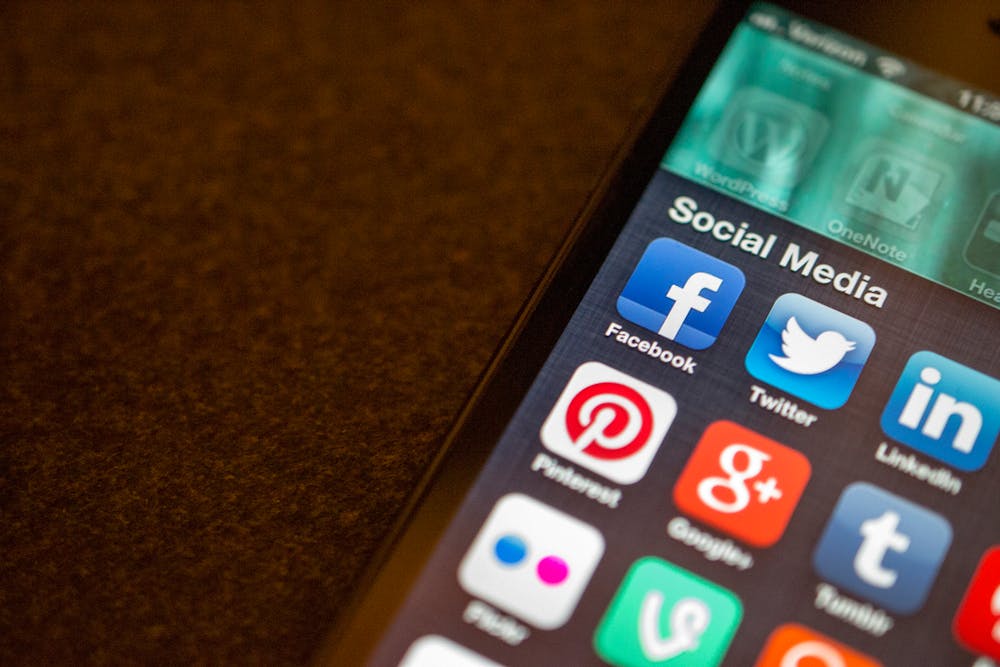“Heads up bro, we got problems,” said Leon in the 2001 “Fast and Furious” movie. And yes, we got problems — we are downright getting dumber. To no surprise, our attention spans are decreasing, too. A goldfish has an attention span of nine seconds. The average human attention span? Eight, down from 12 in 2000. By reading this far into the article, you are doing better than both a goldfish and an average human. And the antagonist that single-handedly caused this? The surge in technology and social media that brought about the whirlwind of fast and furious everything. As a consequence, the generational trend is that people are becoming more restless and outcome-oriented.
Before discussing the detrimental side of social media, it is first worthwhile to mention its benefits. This is especially true during the COVID-19 era, where the existence of apps like Facebook and Handshake enabled campus events and even recruiting events to continue virtually. However, like most things, social media is a double-edged sword.
People are becoming more outcome-oriented when it comes to relationships. Before email was created less than half a century ago, people wrote letters. Letters spanning several pages were written with profound emotions of longing and filled with words too embarrassing spoken out loud. Letters that took days and weeks to deliver and even longer to receive a reply. Letters that would be read, re-read, mulled over once and again, kept as a charm in the pocket, slept with under the pillow at night. This form of communication, now quite a topic of fascination, was how people of our parents’ and grandparents’ generations built and maintained connections. Because everything was so slow, perhaps there was only enough time to hold several dear long-lasting relationships for a lifetime. People knew fewer people and knew them well. People were calmer and happier.
Now? As smartphones became widely available, one’s social group not only expanded, but each individual could be reached by pressing one button. With friendships-made-easy social media apps like GroupMe and Instagram that enable no-lag communications and updates across oceans, the process of friend-making is comparable to products on a factory line. And the products that fail to meet production standards are the very people who don’t like your photos, who leave you on read, who take too long to respond, etc. As a result, friendships can no longer stand the trial of time.
The same goes for romantic relationships. The era of putting in real work for a relationship and having only enough time to fall in love with a few is replaced with mass-produced romance through platforms like Tinder, Coffee meets Bagel, and the Princetonian version TigerMatch. Dating is being streamlined from a one-on-one situation to becoming an all-on-all until someone declares “exclusive.” People aren’t willing to take the time to get to know one person, because why waste your time and energy chasing that one person who might reject you, when there are so many others? If one person doesn’t work out, you’ve only got to go down the list until someone does. What then starts to develop is the habit of hooking up rather than settling down for a relationship, indirectly pushing back the age of marriage further and further.
People are also becoming more restless when faced with the explosion of information. Because there are more outlets for distraction, people are more likely to give in to temptation. Take a slice of life example of watching an online lecture video for a MAT201 course. The lecturer patiently explains the topic on LaGrange multipliers, but you see the progress bar and realize it’s an hour long. Distracted by the thought that you can chill and relax if you finish the lecture — maybe by watching some TikTok videos or playing a round of Among Us with your zee group — what do you do? You put the video on 2x speed, giving enough time to copy down the notes without fully soaking in the information. Then you open TikTok — not even YouTube because even the 15-minute long YouTube videos take too long to get to the point — and watch 30 short clips, equal in length to two YouTube videos, but 30x the thrill. But what have you done to your mind? With the extra 30 minutes that you saved, you have given your mind more time left over to watch even more videos and pack it full with even more information. How much of that will be retained after a night’s sleep?
We need not be like Henry David Thoreau and isolate ourselves completely from any form of communication for two years. An act as simple as stepping away from our computers for an hour and taking a stroll on campus can help reduce our risk of catching the loneliness pandemic.
There are a lot of ways to live life at a slower pace. The easiest and most direct way is staying away from social media, or electronics, altogether. Choose to replace the intangible virtual experiences with reality — hang out with friends in person rather than playing video games online until 2 a.m.; find your date off-line rather than trusting online dating apps; read daily newspapers over receiving no-lag news updates; get closer to nature rather than hole up indoors. As long as you are willing, slowing down the pace of life is very much doable.

The good old days of letting time be a factor are gone. While we humans are capable of going at most at 27.78 mph, a record held by Usain Bolt, a message can travel millions of times faster, at the speed of light. This efficiency certainly brings voluminous opportunities, but at various expenses much more than the examples elaborated upon above. Certainly, efficiency and productivity are positive things, but everything needs a balance. And if at any time the stress and anxiety become too much, know that you can choose to value the process as much as you can choose to focus on the result. The decision is yours to make.
Kelsey Ji is a first-year from Cambridge, Massachusetts. She can be reached at xingej@princeton.edu.









